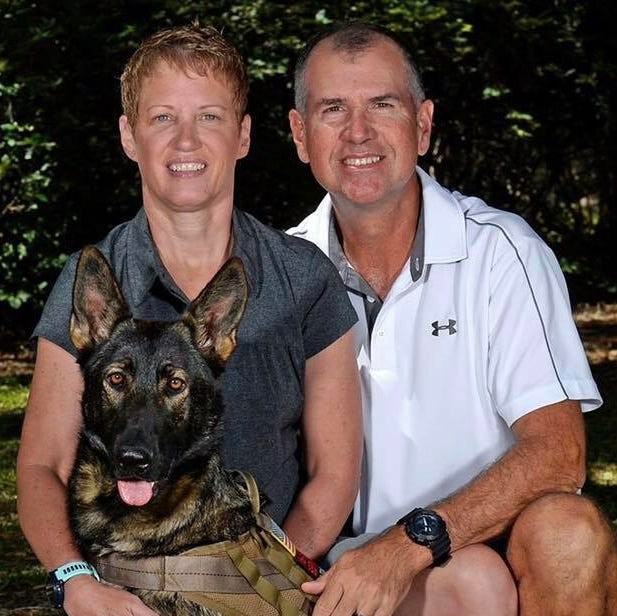Being a good caregiver—a good spouse—is incumbent on good communication. Words you choose, gestures you make, small kindnesses, and gentle supports make all the difference. Good caregivers, especially those of people with TBI and/or PTSD, often play an integral role on their loved one's health and treatment team, which in turn helps all involved be more responsive to the person's needs.
Shortly after Brian and Natalie Vines met in the military in 1998, their unit deployed to Kuwait. Fueled by assignments on nearby bases, common interests, and shared military experiences, their friendship grew into a romantic relationship that eventually led them to the alter. Brian and Natalie loved their careers in the U.S. Army — Brian served for 28 years and Natalie for 21. After several sustaining several TBIs and living with PTSD, Natalie retired from the Army.
And in 2012, Brian, who lives with PTSD as well, decided to retire to take care of his wife. Since then, both Brian and Natalie also found significant growth and healing through their participation in the WWP Independence Program. Brian volunteers as a peer mentor helping his fellow veterans on WWP Project Odyssey® events.
For information about treatments for TBI and PTSD, please visit The Treatment Hub.
Being a good caregiver - a good spouse - is communication. That you can’t use words like, “well, you should know what I’m thinking,” or “you should have known what I wanted.” And the better you communicate, the better your relationship is, the better that you can be part of the caregiving team, which includes clinicians and hospital workers. Being part of that team through communication with your veteran, you can be more responsive to her needs.
BrainLine is powered in part by Wounded Warrior Project to honor and empower post-9/11 injured service members, veterans, and their families.
About the author: Brian and Natalie Vines
Shortly after Brian and Natalie Vines met in the military in 1998, their unit deployed to Kuwait. Fueled by assignments on nearby bases, common interests, and shared military experiences, their friendship grew into a romantic relationship that eventually led them to the alter. Brian and Natalie loved their careers in the U.S. Army — Brian served for 28 years and Natalie for 21. After several sustaining several TBIs and living with PTSD, Natalie retired from the Army. And in 2012, Brian, who lives with PTSD as well, decided to retire to take care of his wife. Since then, both Brian and Natalie also found significant growth and healing through their participation in the Wounded Warrior Project® Independence Program. Brian volunteers as a peer mentor helping his fellow veterans on WWP Project Odyssey® events.

